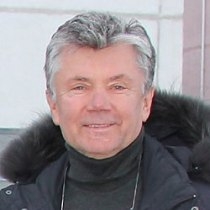Ru
|
Eng
Cooperation with IAEA helps Belarus successfully implement nuclear energy program
06.12.2016

The International Atomic Energy Agency (IAEA) provides all kinds of support to the countries that decide to build a nuclear power plant of their own. The work proceeds in accordance with the IAEA’s technical cooperation programs and is based on the most important questions the country has at a specific stage of implementation of the nuclear energy project. The introduction of an integrated control system at a nuclear power plant is one of such questions. Last week IAEA experts arranged a training seminar for top executives of the state enterprise Belarusian Nuclear Power Plant and for quality assurance specialists. Representatives of the Nuclear and Radiation Safety Department of the Belarusian Emergencies Ministry also took part in the seminar. Prospects of future stronger cooperation between the IAEA and Belarus are covered by the BelTA interview with Jozef Zlatnansky, a representative of the Nuclear Infrastructure Development Section (NIDS) of the Nuclear Power Division of the International Atomic Energy Agency.
While in Belarus you were able to get familiar with the progress of the nuclear power plant construction project in Ostrovets. What can you say about what you saw?
First of all, I’ve noticed that Belarus has taken a large step forward by building a nuclear power plant with modern reactors. The VVER-1200 design is very reliable and safe. You have done well implementing it. There is already an education and training center in Ostrovets. It has a modern full-scale simulator. It is important that personnel of the nuclear power plant will be able to get hands-on training even before the nuclear power plant goes online.
While in Belarus I met with Deputy Energy Minister Mikhail Mikhadyuk and other representatives of the Energy Ministry. I had an opportunity to make sure that IAEA seminars are very important for top officials of the ministry and the state enterprise Belarusian Nuclear Power Plant.
What else can the IAEA and Belarus do for the sake of the successful implementation of the nuclear project?
The International Atomic Energy Agency is an international organization that stands ready to help all the member states, including Belarus. Since the construction of the nuclear power plant in Ostrovets began, we’ve already organized a number of seminars together. Your specialists that will operate the nuclear power plant can be trained in the IAEA or in the IAEA member states, which are implementing their own nuclear programs. The International Atomic Energy Agency always welcomes such things. I think that cooperation between the IAEA and Belarus will give good results and will grow stronger in the future.
An agreement has been reached that in February 2017 representatives of the Energy Ministry and the Nuclear and Radiation Safety Department of the Belarusian Emergencies Ministry will visit the IAEA HQ in Vienna where we will come up with ways to improve cooperation for the next two years.
In late November Switzerland citizens voted against shutting down the country’s nuclear power plants prematurely. The poll asked whether the citizens wanted the operation term of the nuclear power plants limited to 45 years and 54% of those polled spoke against the initiative.
I am from Slovakia. It is a country where people have supported their nuclear energy industry. I think the acceptance of nuclear energy depends a lot on how the country works with the public opinion. For example, in this regard I can mention your work to create the information center in Ostrovets. How work in this area proceeds is very important, including what information is funneled to university students, scientists, and people, who live next to the nuclear power plant.
I respect Switzerland as a democratic country where people can deal with important matters via referendums. In Switzerland nuclear power plants generate about 40% of the country’s electricity. People decided in favor of this policy and against the steps that could negatively influence the economy and environmental protection. It is a very positive piece of news in my personal opinion.
Does it indicate that the society is gradually overcoming the post-Fukushima syndrome?
Difficult to say because in many countries of the European Union and the rest of the world such things depend on political decisions, on what approach to informing the general public has been chosen. About 60 new reactors are being built all over the world. Most of them are located in Asia, China. These projects should make a contribution to the improvement of the economic state and the environmental state. Nuclear energy industry will play an important role in the development of the countries that have supported it.
ANALYTICS
30.08.2023
21.03.2023
30.08.2021
02.07.2021
23.06.2021
10.06.2021
04.06.2021
03.06.2021
20.05.2021
15.05.2021













